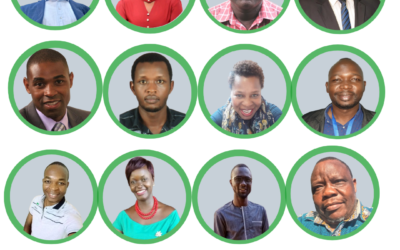The 3rd Pan African Capacity Development Forum (CDF3) has been held in Harare, Zimbabwe by the African Capacity Building Foundation (ACBF) to coincide with the Silver Jubilee of ACBF. The three day Forum was held from May 3- 5, 2016 under the theme Developing Capacity for Africa’s Economic and Social Transformation’ and generated various debates among the delegates. It was attended by both regional and international development and capacity building partners as well as academia and researchers. Participants decried the fact that “Capacity remains the missing link to sustainable development in Africa. Participants also emphasized that for Africa to attain its development agenda, governments and partners must work together to build capacity for fighting corruption and increasing domestic resources to ensure that Africa is not donor dependent.
Officiating at the celebrations, the Vice President of the Republic of Zimbabwe Hon. Phelekezela Mphoko stressed the like ACBF;
“Future generations will never forgive us, if we do not provide the required support and attention to a pan-African institution such as ACBF.”
Hon. Phelekezela Mphoko emphasized the need to develop and harness specific skills required for the attainment of Africa development agenda.
The Executive Secretary of ACBF, Prof. Emmanuel Nnadozie, noted that what Africa needs is more than economic growth, adding that African countries need enhanced social capacity for job creation so as to attain economic and social transformation.
Prof. Emmanuel Nnadozie urged the remaining 15 African nations that have not subscribed to the Pan African Development Forum to do so to enable them transform good strategies into implementation.
The discussions during the three days also focused on the need to build further capacity for the attainment of both Agenda 2063 for Africa and the Global Sustainable Development Goals (SDGs). Stakeholders noted that continent requires sustainable capacity to implement the transformative vision it has defined for itself under the AU Agenda 2063, as well as to achieve the global Sustainable Development Goals shaped in September 2015. ACBF was specifically hailed for spearheading the realization of capacity development in Africa in the last two decades.
During the celebrations, a number of partners showcased the need for developing capacity for the various priority areas that are key to Africa’s social economic transformation. The Centre for Tobacco Control in Africa ( CTCA), led by the Centre Director and Dean Makerere University School of Public Health Prof. William Bazeyo presented a case for investing in tobacco control. The Centre warned that unless something is done to strengthen the capacity for tobacco control in Africa, the continent is poised to face a double epidemic of both communicable and Non- Communicable Diseases (NCDs), with tobacco being a major risk factor for the NCDs.
At the end of the three days, stakeholders identified the capacity needs of the continent focusing on the role of governments, development partners, civil society, private sector and the media, developing capacities for resource mobilization, among others. Tobacco control investment was cited as one of Africa’s priorities.


0 Comments